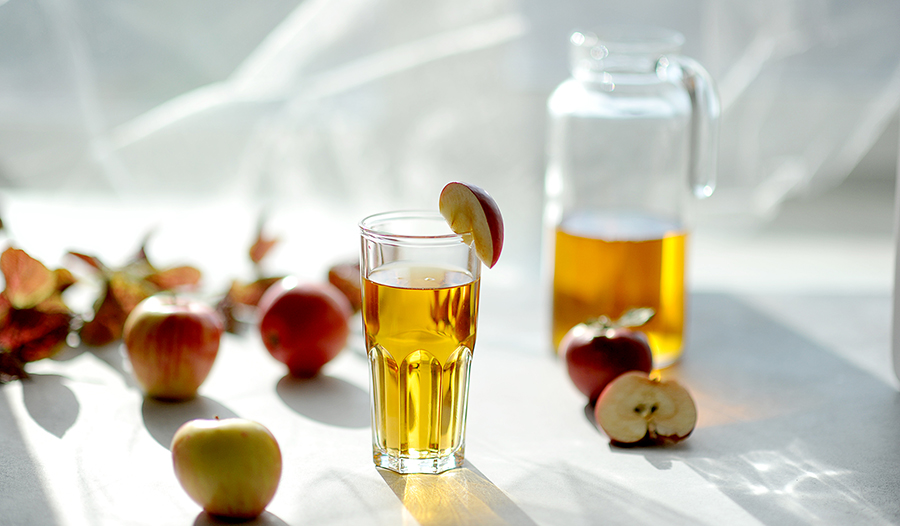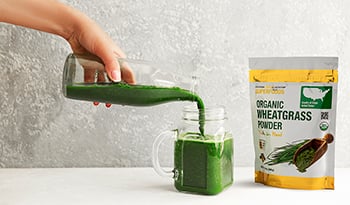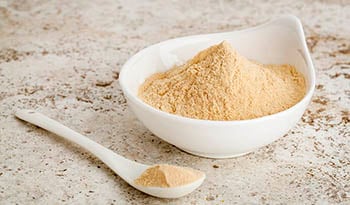8 Reasons Why You Need Vinegar in Your Pantry

How is Vinegar Made?
Vinegar has been used all over the world for millennia for food, medicine, cleaning, and preservation. It can be made from numerous substances including, wine, rice, apples, and other fruit, grains, coconut, potatoes, and sugar. Fermenting vinegar is a natural process you can do at home with a starter culture.
The bacteria of genus Acetobacter (or acetic acid bacteria) make vinegar by converting ethanol into acetic acid in the presence of oxygen. Acetic acid is the component that gives vinegar its sour, intense flavor.
Most households keep vinegar on hand, so let’s explore some new ways that we can put it to use.
What Are Some Different Types of Vinegar?
The vinegar getting most of the press these days is apple cider vinegar (ACV). When regular alcoholic apple cider is fermented a second time into acetic acid, the result is ACV.
Balsamic vinegar, malt vinegar, and red and white wine vinegars are fermented grape must, beer, and wine, respectively. These vinegars are primarily used in cooking, as well as in salad dressing and other condiments.
White vinegar is commonly used in pickling and household cleaning. When packaged for consumption, white vinegar contains 4% to 7% acetic acid, and when it is packaged for industrial uses, 20% acetic acid. Rice vinegar, fermented from rice wine, is another common vinegar used for pickling and flavoring.
What are the Uses and Benefits of Vinegar?
As people are becoming more interested in natural healthcare, scientific studies have validated some of vinegar’s traditional healing uses.
1. Vinegar is Rich in Nutrients
Apple cider vinegar contains vitamins, minerals, and the beneficial plant compounds flavonoids, polyphenols, carotenoids, prebiotics, probiotics, and organic acids.
Vinegars made from grapes contain beneficial plant compounds known as anthocyanins, as well as small amounts of micronutrients.
White vinegar and rice vinegar contain small amounts of micronutrients.
2. Vinegar, Blood Pressure, and Sugar
In a double-blind study of 175 obese Japanese individuals, participants who consumed 1 Tbsp. (15 ml) or 2 Tbsp. (30 ml) of ACV daily saw improved blood measurements of triglycerides and cholesterol, as well as a small decrease in fat mass and blood pressure. The study took place over 12 weeks, and results were seen as soon as four weeks with the higher dose of 2 Tbsp. being slightly more effective.
In a small study of 11 individuals with diabetes, participants ingested vinegar at bedtime and found a 4% decrease in fasting blood sugar the following morning.
Another small study, in which participants with insulin resistance or type II diabetes consumed vinegar 2 minutes before a high-carbohydrate meal, showed improved insulin sensitivity and blood sugar response compared to placebo.
3. Vinegar and Weight Maintenance
Vinegar is no magic bullet for weight loss, but a Swedish study has found that in addition to similar blood sugar benefits shown in other studies, white vinegar can increase satiety, which may help you consume fewer calories.
Along with regular healthy diet and exercise habits, vinegar may help support a healthy weight. We know from the studies above ACV can help improve blood sugar, a side effect of which is weight loss, so ACV may indirectly bolster your weight loss efforts.
4. Vinegar and Digestion
There are a number of theoretical digestive system benefits from vinegar, but they have not been confirmed by studies. Vinegar may help people with the discomfort associated with minor issues like mild bloating, indigestion, and constipation. Enzymes in ACV may help break down food for optimal digestion and nutrient absorption.
5. Vinegar and Sore Throats
While no clinical studies have looked into using ACV for a sore throat, many people claim gargling with diluted ACV and honey can help soothe the discomfort of minor throat irritation.
6. Vinegar and Skin Health
Historically, vinegar has been used topically for minor skin conditions. It has been proposed as a spot treatment for acne and other minor skin infections, such as warts, nail fungus, and fungal issues of the scalp and skin. However, very limited scientific evidence is available to confirm this.
7. Vinegar Cleanse or Detox
Using ACV as part of a detox protocol has gained a lot of popularity; however, no direct evidence exists regarding the effectiveness of this use.
Theoretically, the other benefits discussed here may improve overall health and lead to more efficient detoxification as a consequence. Historically, ACV has been used to cleanse the liver, gallbladder, and lymphatic system.
8. Vinegar as a Household Disinfectant
Under laboratory conditions, a 6% solution of acetic acid from white vinegar has been shown to kill Mycobacterium tuberculosis (the causative agent of tuberculosis) and other mycobacteria after 30 minutes.
ACV inhibits fungal growth of Candida albicans at 5% acidity, microbial growth of Staph aureus at 2.5% acidity, and microbial growth of Escherichia coli at 0.1% acidity.
In addition, in the laboratory, ACV has been shown to enhance the ability of the immune system cells to fight infection.
Many household cleaning products contain harmful ingredients. Using safe, natural substances like vinegar in your kitchen and bathroom can help you have a healthier home.
Which Kind of Vinegar Should I Buy?
There are so many kinds of both useful and delicious vinegar that choosing one can seem overwhelming.
Raw, unpasteurized, or unfiltered ACV has the “mother” in the bottom of the bottle, which looks like a more solid mass that can be shaken up to redistribute it in the bottle. The mother contains more of the beneficial ingredients, so try to find one with this included.
Check for any added sugar on the label of vinegar products; this would indicate a more processed product. While you can make vinegar out of sugar, the final product should have the sugar fermented out by acetic acid bacteria.
How Should I Use Vinegar?
If you want to try adding vinegar to your healthy routine, the easiest way is to dress up your normal water intake by adding vinegar. It’s a tasty and low-calorie way to stay hydrated. Here are a couple of drink recipes to get you started:
Lemon-Ginger Apple Cider Vinegar Wellness Shot Recipe
Ingredients:
- Large bottle or glass of water
- 1-2 Tbsp. ACV
- Lemon juice, to taste
- 1 tsp. honey or maple syrup
- ½ tsp. fresh grated or dry ginger
Cayenne Vinegar Wellness Shot Recipe
Ingredients:
- Large bottle or glass of water
- 1-2 Tbsp. ACV
- 1 tsp. honey or maple syrup
- ⅛ tsp. cayenne (or to taste)
Instructions:
Mix all ingredients well and sip throughout the day.
Some people find the strong taste of vinegar to be too much. Cooking with it may be more your style. You can use vinegars to make homemade salad dressings, coleslaw, potato salad, ketchup, mayonnaise, cottage cheese, and pickles.
If you prefer, you can even find ACV supplements in tablets or gummy form if you don’t like the taste but still want to try using it for health benefits.
Why Should Vinegar Be a Pantry Staple?
Besides ingesting vinegar for health effects, there are plenty of other reasons to have it on hand. ACV can be used after washing your hair as a conditioner and as a facial toner (be sure to dilute properly).
Regular white vinegar is often used for household cleaning in your kitchen and bathroom not only because of its ability to kill bacteria but also because it can eliminate odors. Some sources say vinegar is also useful for killing weeds and pests (although a stronger, industrial-strength acidity may be necessary).
Are There Any Safety Considerations?
Most commercially available vinegars are diluted properly (some countries even regulate the dilution in products allowed for sale). However, be mindful that you dilute it for consumption so that you do not burn your mouth or esophagus. While some people have encouraged drinking a straight capful, not only is this intense but it may be damaging. Use at least one cup of water per tablespoon of vinegar.
The acidity may be harmful to the enamel in your teeth; it is best to drink vinegar through a straw or rinse your mouth after consumption. Note that industrially available vinegar for commercial cleaning is much stronger than culinary vinegar and is not safe to consume.
Vinegars of all kinds, particularly ACV, have lots of wonderful health benefits and uses. In addition to your usual healthy nutrition and lifestyle, it can give a tasty boost to your culinary adventures and leave your home sparkling clean. Remember, it’s not a quick fix, but a lifestyle addition.
Talk to your doctor if you take any medications that may need to be adjusted with the addition of ACV or other vinegars to your healthy lifestyle.
References:
- Cortesia C, Vilchèze C, Bernut A, et al. Acetic acid, the active component of vinegar, is an effective tuberculocidal disinfectant. mBio. 2014;5(2). doi: 10.1128/mbio.00013-14.
- Johnston CS, Kim CM, Buller AJ. Vinegar improves insulin sensitivity to a high-carbohydrate meal in subjects with insulin resistance or type 2 diabetes. Diabetes Care. 2003;27(1):281-282. doi:10.2337/diacare.27.1.281.
- Kondo T, Kishi M, Fushimi T, Ugajin S, Kaga T. Vinegar intake reduces body weight, body fat mass, and serum triglyceride levels in obese Japanese subjects. Biosci Biotech Biochem. 2009;73(8):1837-1843. doi: 10.1271/bbb.90231.
- Östman E, Granfeldt Y, Persson L, Björck I. Vinegar supplementation lowers glucose and insulin responses and increases satiety after a bread meal in healthy subjects. Eur J Clin Nutr. 2005;59(9):983-988. doi: 10.1038/sj.ejcn.1602197.
- White AM, Johnston CS. Vinegar ingestion at bedtime moderates waking glucose concentrations in adults with well-controlled type 2 diabetes. Diabetes Care. 2007;30(11):2814-2815. doi:10.2337/dc07-1062.
- Yagnik D, Serafin V, Shah AJ. Antimicrobial activity of apple cider vinegar against Escherichia coli, Staphylococcus aureus and Candida albicans; downregulating cytokine and microbial protein expression. Sci Rep. 2018;8(1). doi: 10.1038/s41598-017-18618-x.
DISCLAIMER:This Wellness Hub does not intend to provide diagnosis...
















































































 Table of Contents
Table of Contents
















